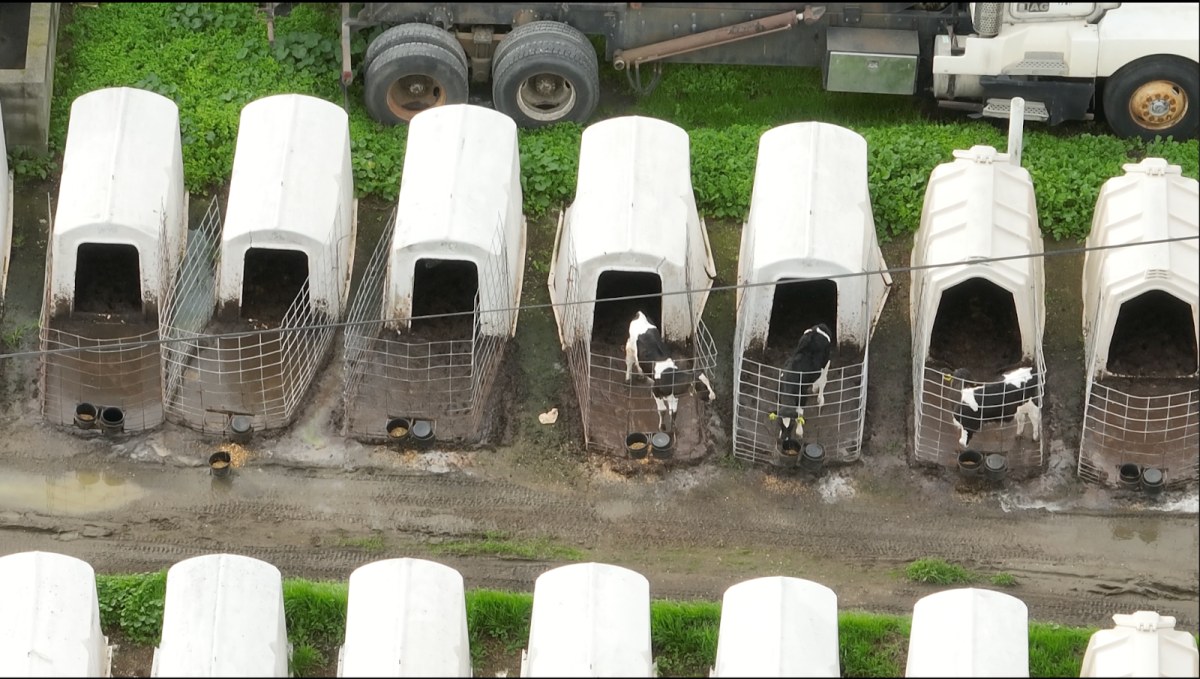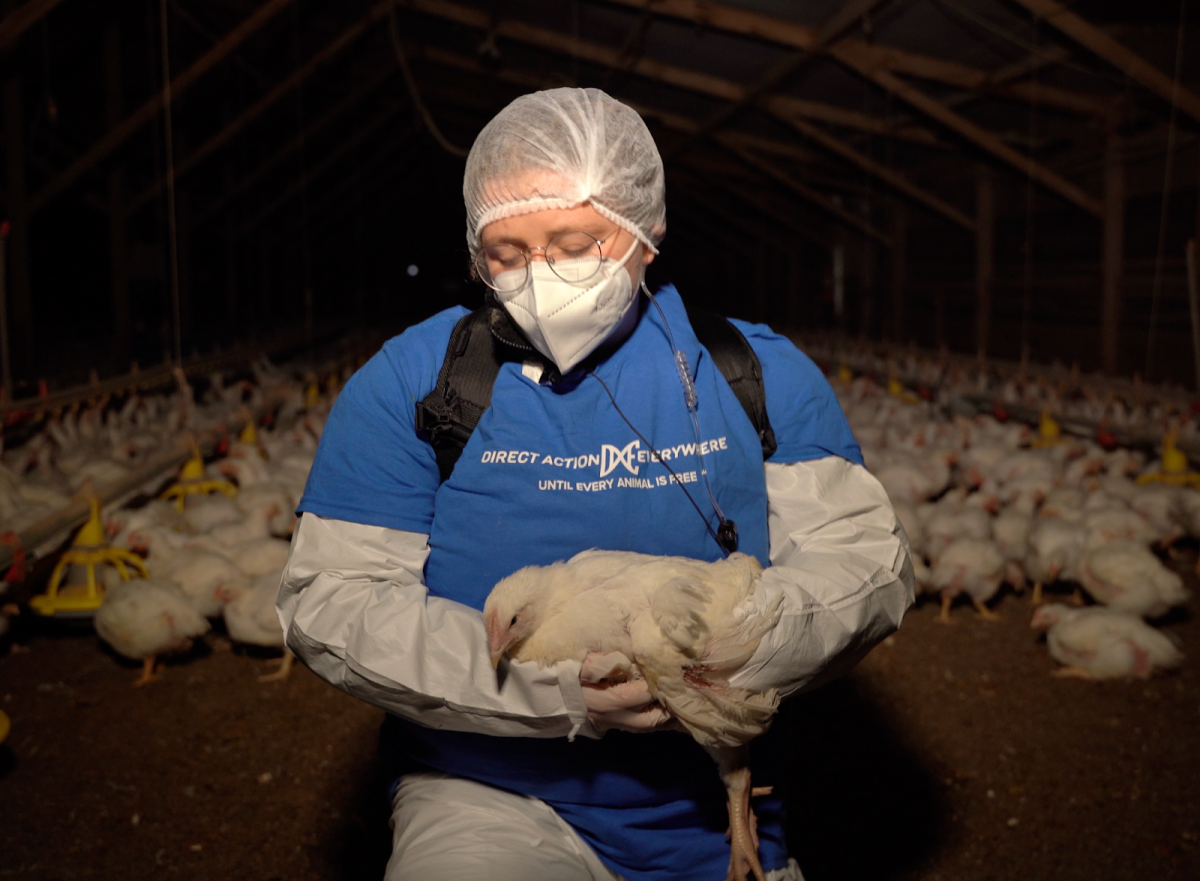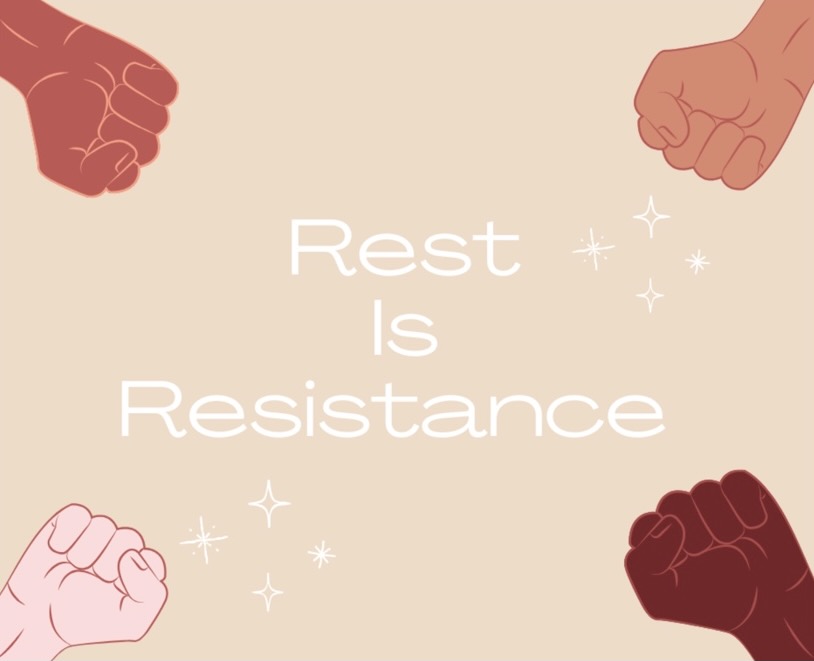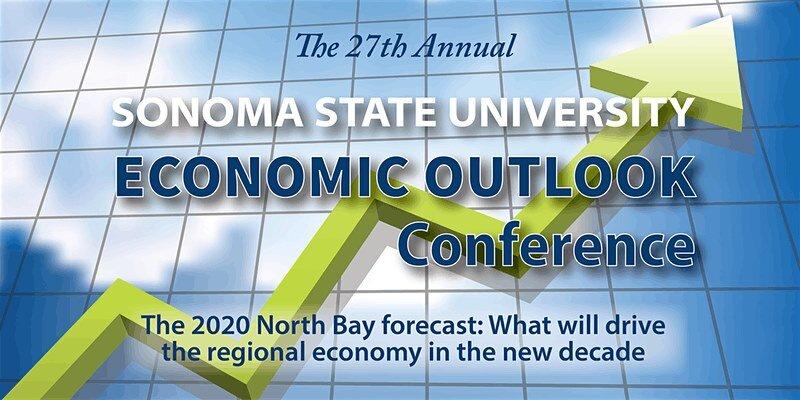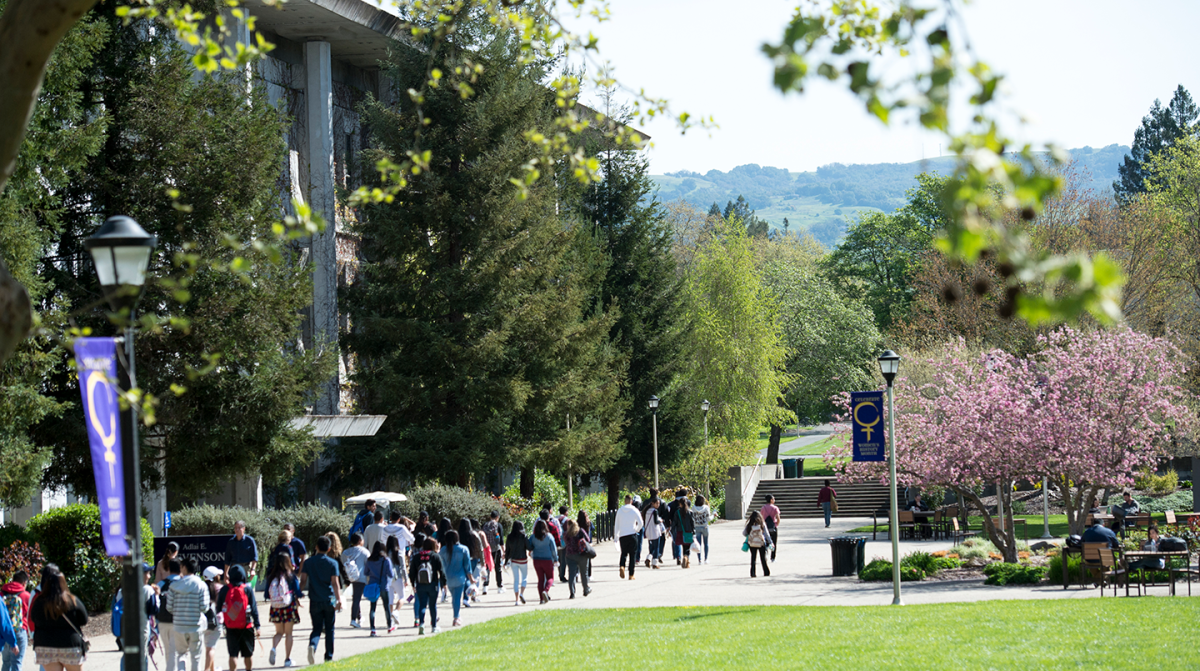The Student Center was filled with well-dressed business leaders, as Sonoma State University hosted the 27th annual North Bay Economic Outlook Conference on Thursday, Feb. 20.
Sonoma State University President Dr. Judy Sakaki graciously opened the conference with words of wisdom acknowledging the native history of the land Sonoma State’s campus resides on and by quoting Coretta Scott King, “The greatness of a community is most accurately measured by the compassionate actions of its members.”
Dr. Sakaki said we live in a “welcoming region” filled with “energy and inclusive spirit,” and she noted that for the economy to be robust, it needs to “create more opportunities for young people…Together, we can make a difference,” she added, and in order to thrive, the region needs “economic innovation coupled with compassion.”
When asked how Sonoma State students can contribute to an economic renaissance built on empathy, Dr. Sakaki said, “students can reach out to each other…make eye contact…and have compassion for others.” She says that after the fires, she saw positive change in the relationships students have with faculty, staff, and fellow students, and she wants students to know that the University cares and is there for them.
The widely respected Dean of International and Extended Education at SSU, Dr. Robert Eyler, renowned economist, lecturer, and public speaker, delivered the keynote address. His talk focused on the region’s economy and forecast for the near future.
The data presented by Dr. Eyler shows a fading economy coupled with negative population growth, but he sees no real threat of recession through 2022.
“Unemployment rate through 2022 is expected to stay below four percent,” Dr. Eyler told the crowd, with “income growth below 2 percent” as “middle and low wage jobs are filling the gap,” and “GDP growth is lumbering along since the Great Recession.”
“Businesses are concerned about macro-risks” in a tightening economy because “they don’t see return on investment.”
Negative population growth is impacting the regional economy, as the numbers are down for the last few years but still remain positive for the decade. Fires are one of the motivating factors, but the unique local economy is also to blame. “Napa had more deaths than births” due to an aging population combined with a high cost of living and unaffordable housing prices that make it difficult for young families to live in the county.
Residential housing prices maintain wealth in the local economy, but “non-residential investment the last few quarters experienced negative growth,” according to Dr. Eyler’s report.
Housing burden is the main factor prohibiting families from settling down in the region, and Dr. Eyler reports that many households pay upward of “40% of their income on rent.” The forecast indicates that this is not ikely to change, as “relatively low interest rates” will combine with supply issues to drive demand and force prices higher.
Looking to the future, Dr. Eyler wondered if malls could be a solution to the housing crisis, as many stores are closing and vacant retail spaces could be renovated and used to provide affordable housing.
Opportunities for growth exist, and as the cannabis industry continues to evolve, Dr. Ryler notes that “continued growth, nationalization, and consolidation” is expected to bring further changes to the industry that could be very beneficial to the local economy, as Sonoma County is well-placed agriculturally to be a dynamic player in the industry if opinions evolve to meet market demands..
The technology and energy industries are rapidly evolving, and consumers are demanding inclusive technologies that are affordable and easy-to-use at home. Dr. Eyler says that an “energy race is needed” and will be the “true race for entepreneurship for this decade.” He expects to see “solar panels as big as your hand” that will revolutionize the industry and increase sustainability.
Sonoma State can play an integral role by “offering entrepreneurship…and leadership training” that improve critical thinking skills and encourage students to innovate.

